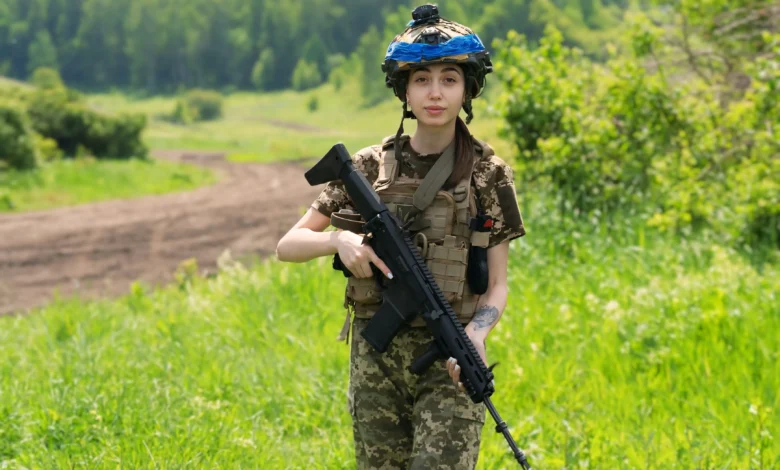The female face of war: the front-line story of Daria with the call sign “Anaconda”

In the Ukrainian army, more and more women occupy not only administrative or medical positions, but also take part in combat operations, lead units, become drone pilots, snipers, sappers. Despite this, society still often perceives them as an exception. In the conditions of war, women not only face real risks, but also have to overcome stereotypes, prejudices and mistrust on a daily basis. That’s exactly what it’s about told Darya, a servicewoman with the call sign “Anaconda”, who serves as a drone operator in the 21st Separate Mechanized Brigade. In her answers, she candidly shares what she experienced, how she perceives the mobilization of women, and why she believes in her mission.
Daria believes that in the army a woman has the same right to be a full-fledged combat unit as a man. She emphasizes: the fact that someone was born a girl should not automatically exclude him from the army. At the same time, she admits that it was not easy to get to the front: her family did not support her decision, especially her brother, who is fighting himself. Only her father did not stand in the way and believed in her – and for that she is sincerely grateful. Daria does not hide it: most of her relatives did not agree with her choice, and even now it is difficult for them to accept it.
She notes that during training at the “Desna” center, she faced direct prejudice from the instructors, who told her that she would not survive after the first visit. According to her, it was not just psychologically difficult, but humiliating, because instead of support, words were heard that made you doubt yourself. However, she is convinced: it was thanks to her inner determination and the support of her siblings that she persevered. Darya emphasizes that today she serves in a combat battalion, works in dangerous areas of the front and is the only girl among the girls to operate drones in a combat zone.
She emphasizes that despite the stereotypes, her comrades in her unit support her, in particular the commanders. This allowed her to believe in her own strength. At the same time, he admits: the first combat tour was a shock. The reality turned out to be tougher than she imagined — scary, dangerous, difficult, especially at the time of entry and exit from positions. Daria admits: fear is normal. And it is impossible to overcome it completely, but it is possible to live with it and act.
The girl is critical of the stereotypical attitude towards women in the army. She believes that to some extent it is provoked by the women themselves, who come to the Armed Forces not for the purpose of protecting the country, but for the sake of money or with the desire to find a husband. In her opinion, it is because of such generalizations that harm other servicemen. She emphasizes that she herself is trying to prove the opposite: she works at the same level as men, performs combat tasks and does not look for favors.
At the same time, she does not support the idea of forced mobilization – neither men nor women. Those who want to fight must fight. Otherwise, the army will end up with unmotivated people who will not be effective. Regarding women, her position is unequivocal: not all women are made for war, especially mothers. She is convinced that children should not grow up without mothers, and therefore considers the forced service for women to be a wrong step.
Darya believes that the alternative to mobilization should be motivation – only then will people come voluntarily, willingly and with a conscious understanding of their role. She points out that the problem is not the number of people, but their quality. According to her, simply filling the ranks of the army by force is the way to nowhere. Instead, a system should be built in which everyone willing will find their place: in the headquarters, in the kitchen, in the technical department or in the combat unit.
As for future plans, Darya speaks firmly: after the war, she does not see herself outside the army. She is interested in further work with drones, perhaps in the direction of teaching others. She emphasizes that during her service, she grew up, became stronger morally, lost her naivety and learned to hold back. The most difficult thing, as he recalls, was adapting to everyday difficulties — for example, the absence of a shower during rotations. But even in such conditions, she did not give up her usual things – she says that for her, manicure is a way to preserve herself.
Darya emphasizes: the war is unlikely to end in the near future. She wants to believe in victory, but she sees the real situation and understands that she will have to hold her ground for a long time. She would have urged herself in the past to believe in herself and not be afraid – because it was faith and determination that became her support.
Those girls who are currently hesitating whether to join the army, she advises not to be afraid of stereotypes. But also don’t neglect psychological training — if possible, you should work with a psychologist to understand your inner motives. And even then – choose the place where you can really be useful.





